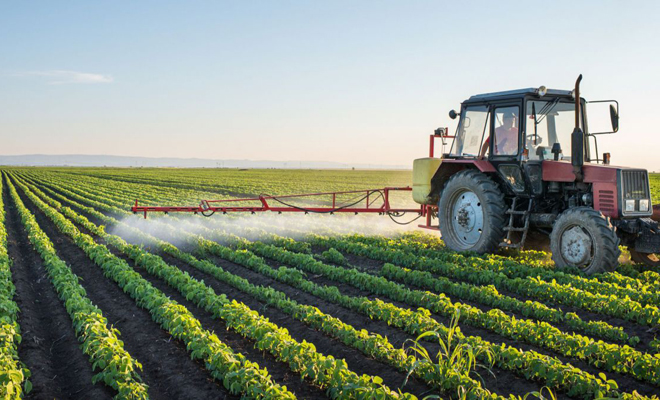
Agriculture of the Republic of Moldova remains one of the vulnerable areas of the Moldovan economy, despite the fact that two years in a row in the sector are good results, above expectations. Most farmers are confronted with the problem of access to cheap financing, with insufficient capacity to increase yields, but more recently with problems related to skilled labor. Program Director Viitorul Viitorul, Viorel Chivriga, declared in the show "15 minutes of economic realism" that the year 2017 was a good one for farmers and the production was high.
"The current year for agriculture and rural development is marked by positive results obtained by farmers in the vegetal sector, minor regression in the animal sector, increasing agricultural and agri-food exports to the EU and CIS, institutional reforms on the part of institutions with functions and attributions in the field agricultural and rural development, the application of several provisions of the Association Agreement to the size of agriculture and rural development ", Chivriga explained.
"In 2017, it was the vegetable sector that generated the increase in agricultural production. Operational data indicates a growing global crop in most crops. Moreover, yields are high for the second consecutive year, despite the fact that in April, natural hazards have affected extensive agricultural crops in the Central and Southern regions of the country. At that time we said that bad weather would not affect agricultural product prices and production would be high. This thing was later confirmed, "he remarked to the program director.
At the end of 2017, autumn crops were set up for the harvest of 2018 on an area of 381,071 thousand ha, of which 134,232 thousand ha in the northern area, 81,755 thousand ha in the Center area, in the South area - 124,195 thousand ha, and 40,889 thousand ha in ATU Gagauzia. Of these, 297,297 thousand ha are set up with autumn wheat, 40,834 thousand ha, establishments with autumn barley, and 40,479 thousand ha, set up with autumn rape. This year, the state of the established agricultural crops is good, which makes us believe that next year's forecasts for grain harvests in the first group will be quite optimistic.
The livestock sector has been marked by a decrease in Tr. 1-3, 2017, but relatively mild compared to the vegetal one. At the same time, the trend of decreasing livestock practically recovered compared to the previous years, except for the year 2016. Accordingly, during the analysis period, the number of cattle decreased compared to the same period last year, being slightly above 178 thousand heads of 201 thousand heads.
On the financial support side for farmers, it is apparently a positive change. The subsidy amount is 900 million lei, much higher than in the previous years, but part of the money will go traditional for the debt settlement last year. But in addition to the relatively good results of agriculture funding, there are clear signs that some measures do not yield the expected results. Only 120 agricultural producers have provided their crops and animals. As an insured area, there was about 5800 ha (various crops) of over 1.6 million hectares of arable land and about 2000 heads of animals. Similarly, there was no dossier on the measure of promoting products on the market (M 1.9), and only two requests for the measure to stimulate the consolidation of agricultural land, Viorel Chivriga believes.
For the year 2018, we estimate that agricultural output will mark a 5 percent advance compared to 2017, and animal and partially vegetal products will grow. Prices for agricultural products, especially for cereals and fruits, will be unstable, but also higher in the first half of 2018 than in the second half of 2017. We also believe that in 2018 and 2019 there will be widespread risks for application of the requirements of the Association Agreement on agriculture, regional development, and the environment, due to the reorganization of the ministry, which will be extended by merging the MAFI with the Ministry of Environment and the subdivisions of the Ministry of Regional Development and Construction. On the other hand, the next two years, which are electoral, will be marked by several populist decisions, hesitations in painful reforms and political interference in the economic sector.
The show is made by IDIS "Viitorul" in partnership with Radio Free Europe.
For more details contact IDIS "Viitorul" Public Relations Coordinator, Victor URSU at ursu.victoor@gmail.com or call 069017396.